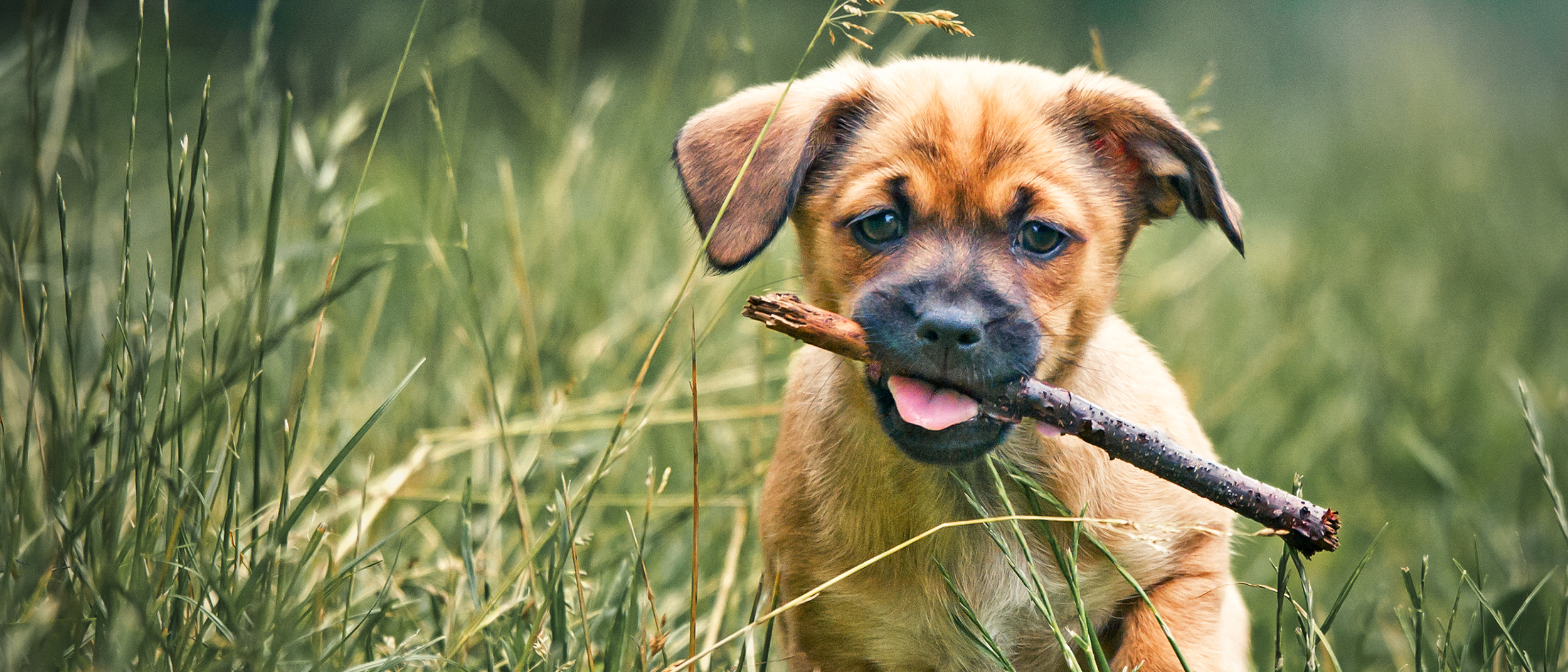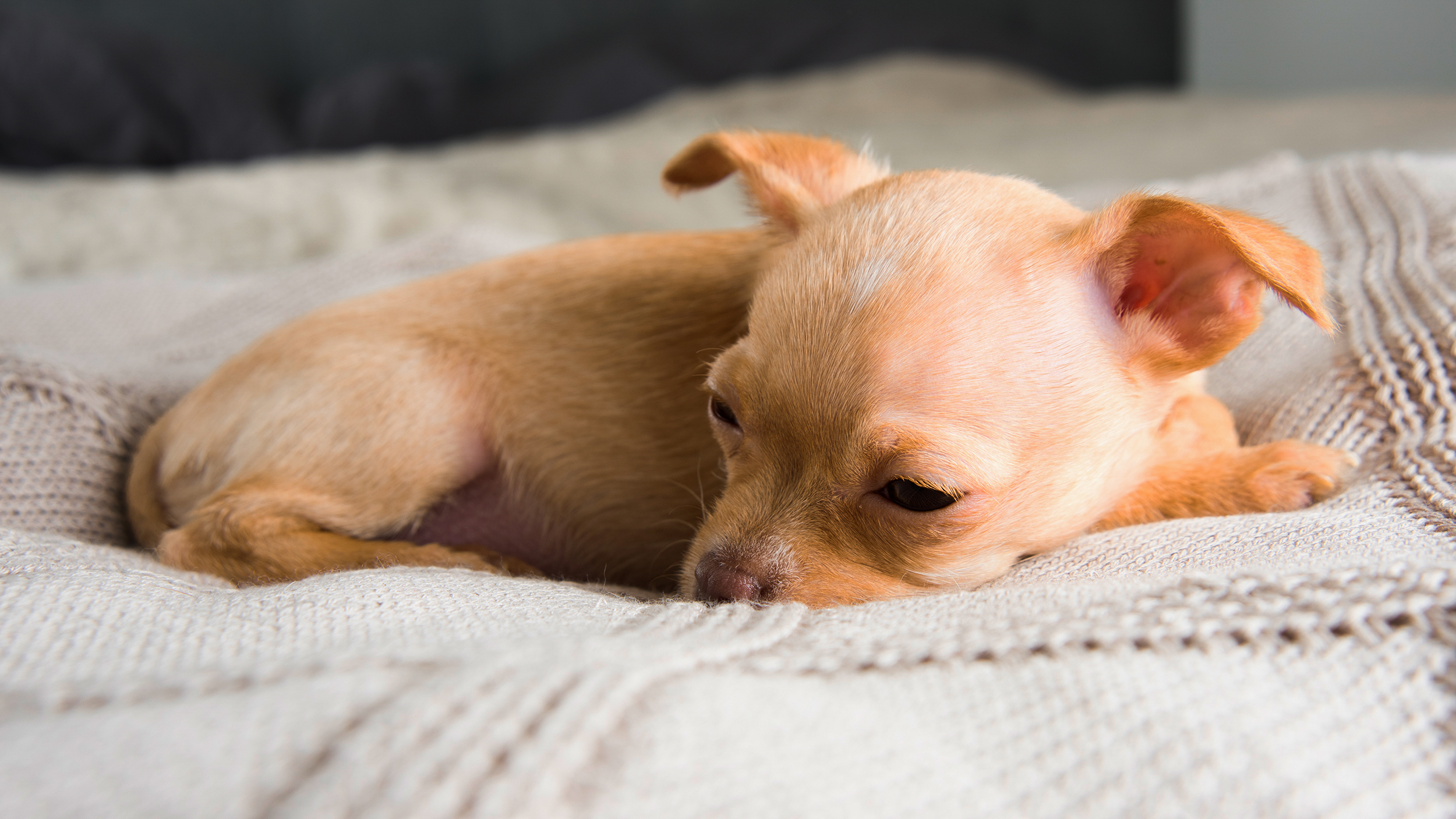Does my puppy have diarrhea?
Article

You have a new puppy and the first week is going great – your pup has been introduced to the new family, is eating well, sleeping through the night (mostly) and progressing well with house training. One morning when you take your puppy out, you notice they have diarrhea. What should you do?
How did my puppy get diarrhea?
Diarrhea is actually quite common in puppies and can vary from one or two mild episodes that resolve quickly to severe gastrointestinal symptoms that may indicate a more serious illness. There are many reasons why puppies experience diarrhea:
• They’re stressed out: Adoption into a new home is exciting for puppies but all of the changes involved can make it a stressful experience. So it’s not unusual for puppies to react with a mild gastrointestinal (GI) tract upset and develop diarrhea. To help reduce the stress that your pup may experience, let them adjust to their new surroundings slowly. Limit the number of visitors they meet during the first weeks to avoid overwhelming them. Provide them with plenty of quiet time and naps and set up a daily routine of regularly spaced feeding, play, rest and exercise.
• They’re on a new diet: Depending on your puppy’s age, they may have just finished weaning, which is a significant diet change. If you’ve changed kibble, it can cause temporary GI upset, especially if the change was introduced rapidly. If you’re going to transition your puppy’s food, make sure that you transition it slowly over a period of seven to ten days, gradually increasing the proportion of new food during that time.
• They’re trying everything: All puppies are curious and tend to explore new items by putting them into their mouths and sometimes ingesting them. Garbage, toys, house plants, insects and even dirt can all be eaten by an unattended puppy and can lead to stomach upset or, more seriously, an intestinal blockage.
• They were exposed to parasites: Parasite exposure can come from dietary indiscretion or transmission from the mother. If you suspect your puppy has a parasite, take them to the veterinarian right away. Parasitic infestations must be treated with medication prescribed by your veterinarian.
• They caught a bug: Diarrhea is one of the most common signs of several infectious diseases in puppies. The most serious of these is parvovirus, a highly contagious disease that can be life-threatening. In addition to developing severe diarrhea, puppies infected with parvovirus will be lethargic, have a fever and show signs of abdominal pain and discomfort. Puppies are particularly susceptible to parvovirus, so be sure to get them vaccinated.

Preventing Diarrhea in Puppies
Related Articles
Find a vet
If you have any concerns about your dog’s health, consult a vet for professional advice.
Like & share this page